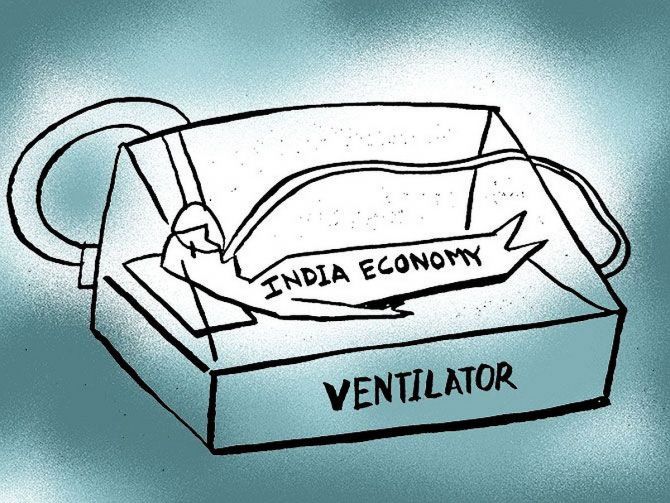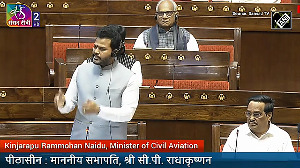There are indications or signs of the economy picking up -- collection of GST and consumption of electricity, said former RBI governor, C Rangarajan.

Former governor of the Reserve Bank of India (RBI) C Rangarajan on Thursday said the decline in the growth of the economy triggered by COVID-19 was like a coma that stays for a short period.
Rangarajan, also the former Prime Minister's Economic Advisory Council chairman, said this during 'SICCI-360' organised here by the Southern India Chamber of Commerce and Industry.
"(Normally) coma lasts for several years (in medical terms). But there are people who come out of it in a shorter period. This is a coma which is short-lived. The point is as you (gradually) lift the lockdown, I expect the economic activity to pick up," he said.
"There are indications or signs of the economy picking up -- collection of GST (goods and services tax) and consumption of electricity," he said to a query from a participant.
According to the finance ministry, GST collected in October rose to Rs 1.05 lakh crore, crossing the Rs 1 lakh crore mark for the first time since February this year, reflecting a pick-up in economic activity.
The revenues for the month were 10 per cent higher than Rs 95,390 crore collected in the same month last year.
Elaborating on this, Rangarajan said, "Beginning September till March, there could be a pick-up in economic activity. But it will not be adequate to compensate for the loss that happened in the first half of the financial year."
If there is no second wave of COVID-19, 2021-22 can see a pick-up and by the end of FY 2021-22, there will be further picking up (of the economy), he said.
Noting that the growth rate was nine per cent for three consecutive years between 2000 and 2010, he said, "Unfortunately, it later fell and further declined. We need a fast-growing economy and that requires measures not only from the government but also from the private sector."
To a query on the weakening of the rupee against the US dollar, he said inflation should be brought under control as external value of the currency was determined by its internal value.
"Fall in value of rupee in terms of the dollar is essentially a demand for goods from the United States, which was stronger compared to Indian goods. Indian goods should be competitive," he said.
"The fact of the matter is the external value of currency is essentially determined by the internal value of the currency. That is what economists were saying. In western economies, the inflation has been very much under control. But our inflation rate has been much higher and it has ultimately contributed to the reduction in value of rupee," he said.
Rangarajan also cautioned that reduction in inflation rate would also have an impact on the country's economic growth.
"The attempt to reduce inflation rates will have an adverse impact on growth. Some people think that we can sacrifice price stability to some extent for a higher rate of growth. But that is an argument that is going on. I may have a view but some other economists might offer a different view," he said.










